Study Guilt: What It Is — and Why It’s So Sticky
You know the feeling: you meant to study for your AP exam, but you watched two episodes, scrolled through your phone for 45 minutes, and then — boom — a hot wave of shame hits. You tell yourself you’ll catch up tomorrow. But tomorrow often looks exactly the same. That sinking tightening in your chest is study guilt, and if left unchecked it becomes a small, constant engine that drains motivation, increases anxiety, and makes productive studying harder, not easier.
Study guilt isn’t just laziness or bad willpower. It’s a complex emotional response that mixes high expectations, fear of failure, and a brain wired to react more strongly to negative feedback than to positive reinforcement. The good news? You can address it with simple, actionable strategies that restore momentum, calm your nervous system, and help you study smarter — not harder.
Why Guilt Hurts Your AP Prep (And What It’s Costing You)
Before we fix the problem, let’s be honest about the cost. Study guilt often leads to three unhelpful cycles:
- Avoidance Loop: Guilt makes studying feel punitive, so you procrastinate to avoid the discomfort — which then increases guilt.
- Perfection Trap: You believe you need uninterrupted, marathon sessions to make progress. When those sessions don’t happen, you label yourself a failure instead of celebrating small wins.
- Cognitive Overload: Guilt increases stress hormones, which impair working memory and concentration — exactly the skills you need for AP-level thinking.
Recognizing these cycles is liberating. Once you name them, you can begin to interrupt them.
Quick Reality Check
Most AP students aren’t behind in some cosmic sense. They’re juggling classes, sports, jobs, family expectations, and mental load. Rewiring how you relate to study (and to yourself) is the key to getting back on track — and doing it sustainably.

Step 1 — Reframe Guilt Into Useful Signals
Guilt can be helpful when it’s a signal — not a sentence. Reframe it like this: “My guilt is telling me I care about my goals.” Then translate that feeling into a small, planful action rather than self-criticism.
Try these micro-shifts:
- Rename the feeling. Instead of “I’m a failure,” say, “I’m noticing I’m off-track and I want a reset.”
- Ask a pragmatic question: “What’s one small, concrete thing I can do in the next 20 minutes to improve my prep?”
- Use guilt as information: Is it about a skipped day, a missed practice test, or an unmet standard? Tackle the smallest piece first.
Step 2 — Build a Low-Guilt, High-Return Study Routine
Instead of all-or-nothing sessions, design study routines that stack wins and preserve your mental energy. The goal is consistency, not perfection.
Core Principles
- Small is Sustainable: Short, focused bursts beat long, guilt-ridden marathons. Think 25–50 minute sessions with clear outcomes.
- Specific Goals: Replace vague intentions (“study chemistry”) with precise tasks (“complete 20 practice multiple-choice questions on acids and bases”).
- Active Over Passive: Prioritize retrieval practice (quizzing yourself), spaced review, and timed practice tests rather than passive re-reading.
- Recovery Built-In: Schedule deliberate breaks that feel restorative, so you don’t fall into the guilt-avoidance cycle.
Sample Weekly Plan for an AP Student
| Day | Primary Goal (30–60 min chunks) | Quick Win |
|---|---|---|
| Monday | Concept review + 20 practice MCQs (time yourself) | Finish a single set of 10 MCQs |
| Wednesday | Targeted free-response practice (outline 2 responses) | Draft one strong thesis sentence |
| Friday | Mixed practice set + review errors | Make one error-correction note |
| Sunday | Timed mini practice test (half-length) | Analyze one pacing problem |
This plan focuses on frequent, manageable practice. Each session has a measurable outcome so you can notice progress instead of amplifying failure.
Step 3 — Use Emotional First Aid When Guilt Surges
Guilt can feel overwhelming in the moment. Have a quick emotional first aid toolkit to reset your nervous system and make better choices.
- Two-Minute Reset: Pause and take three slow, deep breaths. Label the emotion (“guilt”) and observe it without judgment.
- Compassion Script: Say aloud: “It’s okay. I can try again. One small step.” This reframes urgency into kind competence.
- Micro-Tasking: If study feels impossible, choose an approachable micro-task (organize notes, write one flashcard) and do it for five minutes.
Step 4 — Study Smarter: Techniques That Lower Guilt by Increasing Confidence
Confidence grows when your study methods actually produce results. Here are high-leverage techniques that are particularly effective for AP subjects.
Retrieval Practice (Self-Testing)
Stop rereading. Close the book and test yourself. The act of retrieving information strengthens memory much more than passive review. Use question banks, make your own quizzes, or explain a concept out loud as if teaching a friend.
Spaced Repetition
Crucial for long-term retention. Review a concept multiple times spaced over days and weeks. This approach turns frantic last-minute cramming into calm, cumulative confidence.
Interleaving
Mix up problem types during practice. Instead of doing 30 similar algebra problems, combine algebra, geometry, and data analysis — this builds adaptable thinking favored on AP exams.
Active Note-Making
Transform class notes into question-answer pairs, one-page concept summaries, or quick flowcharts. That transforms passive records into active study tools.
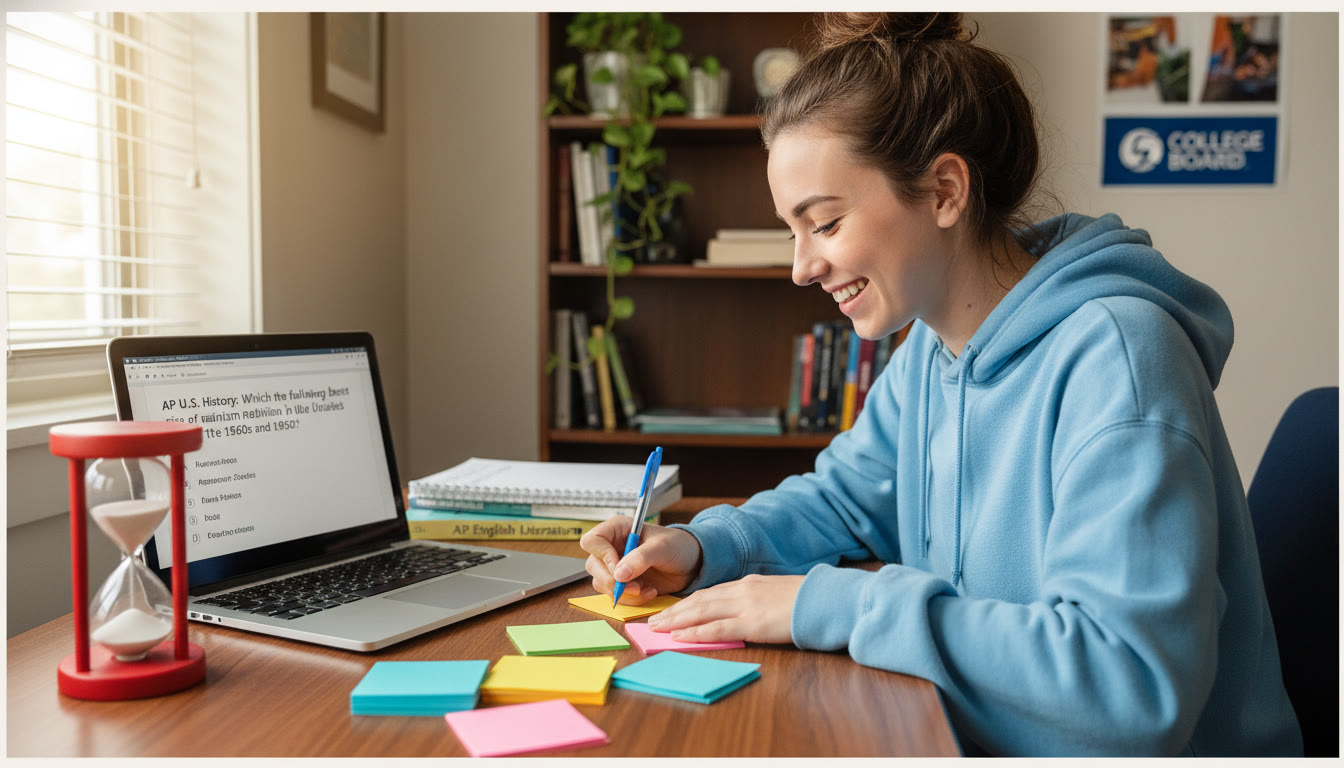
Step 5 — Real-World Examples: How Small Changes Make Big Differences
Imagine two students preparing for AP Biology:
- Student A tries to “study biology” for three hours on Sunday and feels defeated when distracted once. They leave the session feeling guilty and avoid studying until the next week.
- Student B schedules four 40-minute, focused sessions across the week: one on cellular respiration (30 retrieval questions), one on practice FRQs, one on lab data analysis, and one on mixed review. Each session ends with a tiny concrete note: two concepts to revisit. Student B builds confidence and reduces guilt because progress is visible and steady.
Which student is more likely to see measurable improvement on test day? The one who builds momentum through consistency and clarity — and who treats setbacks as course corrections rather than character judgments.
Step 6 — Use Accountability Without Shame
Accountability becomes toxic when it’s judgmental. Choose structures that support rather than punish.
- Study Buddy Partnerships: Share one clear, simple goal before each session (e.g., “I’ll do 20 physics MCQs”) and report back — not to expose failure, but to celebrate the attempt.
- Small Public Commitments: Write a short study pledge on a sticky note where you’ll see it. Keep it realistic.
- Coaching Support: If you’re struggling to build a plan, personalized tutoring can help. Sparkl’s personalized tutoring offers one-on-one guidance, tailored study plans, and expert tutors who translate overwhelm into a manageable, evidence-based study path. Getting targeted feedback can drastically shorten the path from guilt to competence.
Step 7 — Track Progress With Compassionate Metrics
Don’t measure yourself by how perfect your week looks. Use gentle, meaningful metrics that highlight effort and learning.
- Number of focused sessions completed (not hours planned).
- Percentage of practice questions reviewed for errors (quality over quantity).
- Improvement in timed practice scores across weeks, not single sessions.
Here’s a simple tracking table you can copy into a notebook or spreadsheet:
| Week | Focused Sessions Completed | Avg Practice Score | Top Two Areas To Improve |
|---|---|---|---|
| Week 1 | 5 | 68% | Timing on FRQs; organic chemistry reactions |
| Week 2 | 6 | 74% | Graph interpretation; review of practice errors |
| Week 3 | 5 | 79% | Practice pacing; key concept flashcards |
Step 8 — Practical Routines for the Day Before and Day Of
As exam day nears, guilt spikes. Replace that energy with rituals that calm your body and sharpen your mind.
The Day Before
- Do a light, focused review of high-impact concepts (no new major topics).
- Prepare materials: pens, ID, approved calculator, and a comfortable outfit.
- Sleep is non-negotiable. Aim for 7–9 hours.
The Morning Of
- Have a balanced breakfast with protein and slow carbs.
- Do a 10-minute warmup: 10 quick concept recalls or one timed, short section to get in rhythm.
- Use a 60-second grounding routine before you enter the exam room — breathe, notice your feet on the floor, and set an intention (e.g., “steady focus”).
When Guilt Returns: Long-Term Strategies to Keep It From Coming Back
Sustaining low-guilt studying is a habit. These long-term practices make it easier:
- Review Your Wins Weekly: Spend five minutes every Sunday listing what you accomplished, however small.
- Keep Learning Fun: Mix in curiosity-driven study: a short video experiment, a surprising fact, or a mini-project tied to the subject.
- Invest in Support: Periodic check-ins with a coach or tutor can realign your plan and reduce the shame spiral. Sparkl’s personalized tutoring, for instance, can offer AI-driven insights plus human coaching to adjust study load, target weak spots, and reinforce progress — making guilt less likely to spiral into avoidance.
- Build Recovery Rituals: After every practice test, schedule a small, pleasant reward: a walk with a friend, a coffee break, or 30 minutes of a favorite hobby.
Final Thoughts: Guilt Is a Compass, Not a Prison
Study guilt shows you where you care. The trick is to convert that emotion into tiny, measurable actions that respect both your goals and your humanity. Replace impossible standards with deliberate design: short sessions, clear goals, active practice, and compassionate tracking. Over time you’ll notice the real transformation — less shame, more momentum, and steadily improving performance on your AP journey.
If you ever feel stuck, remember that help can be practical and targeted. Working with an expert who understands AP scoring and pacing — and who can create a tailored, realistic plan — often makes the difference between spinning in guilt and making actual progress. Sparkl’s personalized tutoring blends one-on-one guidance, tailored study plans, and smart insights to help students reboot with confidence when they most need it.
Quick Checklist to Release Guilt and Reboot Today
- Rename the guilt and ask one helpful question: “What can I do in 20 minutes?”
- Schedule 3 short, specific study sessions this week.
- Use retrieval practice and spaced review for high-impact results.
- Track effort with compassionate metrics, not perfection standards.
- Set a small reward after your next focused session.
You’re not behind forever — you’re recalibrating. Start small, be kind, and study with strategy. Your future self (and your AP score) will thank you.


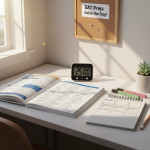

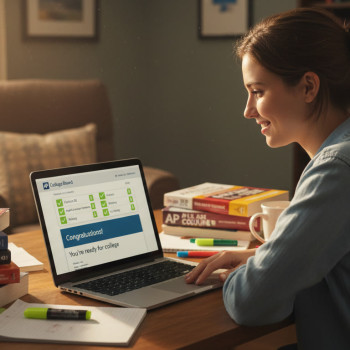

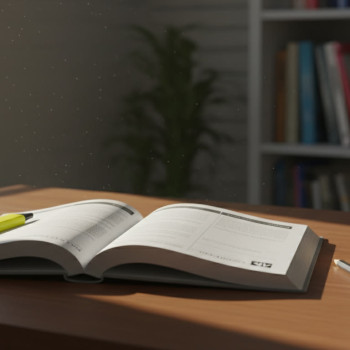
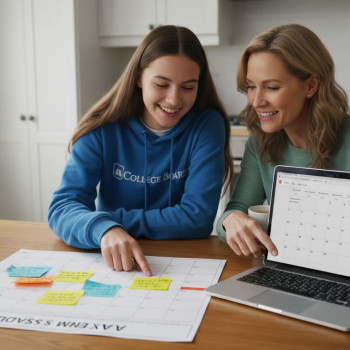









No Comments
Leave a comment Cancel